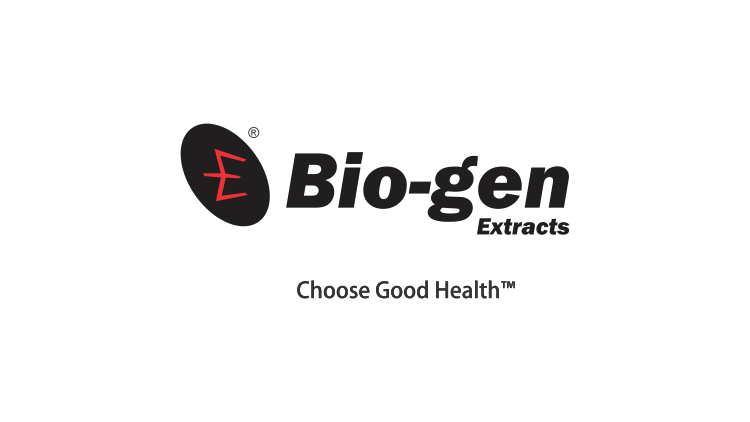Promotional Features
Sports nutrition: How manufacturers can respond to the rise of the active consumer
Active consumers have transformed the sports nutrition market. Once the preserve of professional athletes and fitness gurus, sports nutrition products are now mainstream, with increased interest in wellbeing during the pandemic accelerating the multi-year trend. The shift demands a response from manufacturers. To succeed in the new environment, brands need to create products that deliver the more complete, holistic sets of benefits sought by active consumers.
In the past, sports nutrition products were primarily sold in gyms and were targeted at a small group of consumers who are focused on improving some aspect of athletic performance. To succeed in that market, brands needed to persuade athletes and serious amateurs that their products could help achieve specific objectives, such as improving times in marathons or helping post-event recovery.
Those athletes are still buying sports nutrition products but today are just part of a broader market. Even before the pandemic, a survey found more than 40% of people who bought sports nutrition products did so for their wellbeing, rather than for use before, during or after a workout.1 Another survey found almost all respondents had bought a sports nutrition product in the past six months.2
COVID-19 accelerated the transition of sports nutrition from a specialist to mainstream market. Sales of sports nutrition supplements accelerated in 2020, despite the closures of the gyms that were once a critical point of sale for the products.3,4 Sports nutrition is growing particularly quickly in Asia Pacific, with Euromonitor predicting a 23% compound annual growth rate for the Indian market through to 2023.5
The growth reflects the effect of the pandemic on interest in exercise and healthy living. One survey found COVID-19 made 60% of people more conscious about their health and wellbeing.6 Those consumers are interested in supplements and ingredients that can help them live more active lifestyles, thereby furthering their efforts to avoid the metabolic disorders and other problems linked to sedentary behavior. That interest has led consumers to sports nutrition products.
Meeting new consumer demands
The health priorities of the new and traditional consumers of sports nutrition products are different. While the success of sports nutrition products has traditionally rested on their ability to give an edge to athletes, active consumers have a more diverse set of health objectives that spans cardiovascular, respiratory, immune and cognitive health, in addition to measures of performance and endurance.
Inorganic nitrates offer sports nutrition brands a chance to address the diverse demands of active consumers. There is an extensive body of evidence linking inorganic nitrates, which are converted to nitric oxide (NO) in the body, to a wide range of positive health outcomes. As NO increases blood flow, researchers have evaluated the effect of inorganic nitrates on variables including exercise performance, cognitive function, lung function, immune function and cardiovascular health.7–10
The research suggests inorganic nitrates have the rare mix of properties needed to meet the diverse active nutrition demands of modern consumers. However, the studies also suggest many existing products may lack the quantities of inorganic nitrates needed to drive improved outcomes. With the literature showing 7 to 12 mmol of nitrate is needed, brands must familiarize themselves with the science to avoid under or overdosing consumers.
Selecting an effective dose is critical to delivering the results consumers want and thereby driving repeat purchase. Bio-gen Extracts has worked to understand the effect of its TruBeet, an ingredient based on inorganic nitrate-rich beetroots, by running a randomized, double-blind, placebo-controlled study.
The study focused on the effect of TruBeet on measures of endurance and exercise performance. Subjects who took TruBeet for seven days had significantly higher mean peak power in the second half of a 60-second end-sprint that followed two hours of moderate exercise. The finding points to the potential for TruBeet to improve endurance exercise performance, possibly because it enhances muscle oxygenation or oxygen extraction.
Tolerability was another positive of the study. Typically, beetroot-based products cause some amount of gastric distress. However, participants in the TruBeet clinical trial were free from such effects, which is critical in a performance-based setting or day-to-day activity.
Having validated the impact of TruBeet on traditional sports nutrition endpoints, Bio-gen Extracts has plotted out a multi-year development program designed to show the effect of the extract on the wider range of health outcomes of interest to active consumers. Bio-gen Extracts is running the program to show TruBeet can meet the significant demand for products that support a more holistic approach to health.
Creating the optimal inorganic nitrate product
TruBeet has some potential advantages over other sources of inorganic nitrates. Bio-gen applies a proprietary process to beetroots grown in a specific area in southern India to obtain a high potency extract with minimal oxalate content. TruBeet is standardized to contain 6% nitrate, far exceeding the 2% or 3% nitrate found in other products.
The higher concentration of nitrate found in TruBeet has benefits for consumers and manufacturers. Consumers need to take less TruBeet to get the required dose of nitrate. Manufacturers benefit from the effect of volume reductions on the supply chain, such as lower storage and logistics costs. Those savings reduce the cost per dose, resulting in further benefits to consumers.
Manufacturers that partner with Bio-gen Extracts to access TruBeet stand to realize those benefits and deliver sports nutrition products that meet the demands of the fast-growing active consumer segment. By delivering optimal levels of clinically validated inorganic nitrates, manufacturers will set themselves up to drive growth by addressing the diverse health demands of today’s buyers of sports nutrition products.
References
1. FMCG GURUS: Trends and Developments in Active Nutrition: New Consumer Insight. (2019).
2. FMCG Gurus: How Sports Nutrition is Evolving in 2020. https://fmcggurus.com/blog/fmcg-gurus-how-sports-nutrition-is-evolving-in-2020/ (2020).
3. Reynolds, C. M. The Analyst’s Take: COVID-19 affects forecasts for $47.3B sports nutrition and weight management market. https://www.newhope.com/market-data-and-analysis/analysts-take-covid-19-affects-forecasts-473b-sports-nutrition-and-weight (2020).
4. Key trends shaping US sports nutrition in a post-Covid world. https://www.naturalproductsinsider.com/sports-nutrition/key-trends-shaping-us-sports-nutrition-post-covid-world (2021).
5. HealthWorld, E. T. Covid, Neeraj Chopra, and the rise of the sports nutrition industry. ETHealthWorld https://health.economictimes.indiatimes.com/news/industry/covid-neeraj-chopra-and-the-rise-of-the-sports-nutrition-industry/86010535 (2021).
6. Hancocks, N. Top trends in performance and active nutrition. https://www.nutraingredients.com/Article/2021/01/21/Top-trends-in-performance-and-active-nutrition (2021).
7. Jones, A. M. Dietary nitrate supplementation and exercise performance. Sports Med. 44 Suppl 1, S35–45 (2014).
8. Clifford, T. et al. Effects of inorganic nitrate and nitrite consumption on cognitive function and cerebral blood flow: A systematic review and meta-analysis of randomized clinical trials. Crit. Rev. Food Sci. Nutr. 59, 2400–2410 (2019).
9. Behnia, M., Wheatley, C. M., Avolio, A. & Johnson, B. D. Influence of dietary nitrate supplementation on lung function and exercise gas exchange in COPD patients. Nitric Oxide 76, 53–61 (2018).
10. Raubenheimer, K. et al. Effects of dietary nitrate on inflammation and immune function, and implications for cardiovascular health. Nutr. Rev. (2019) doi:10.1093/nutrit/nuz025.




